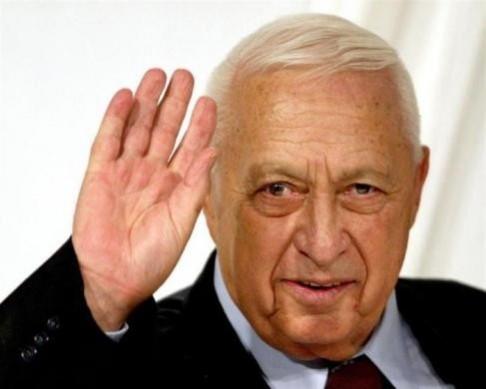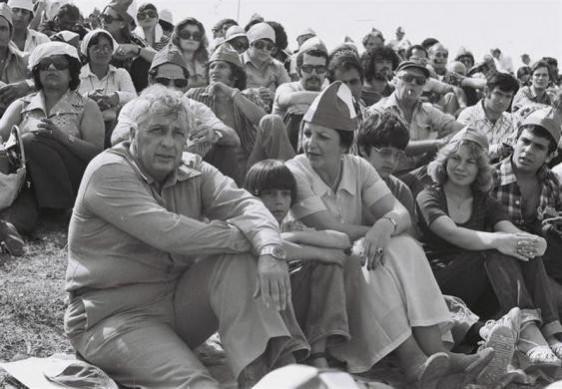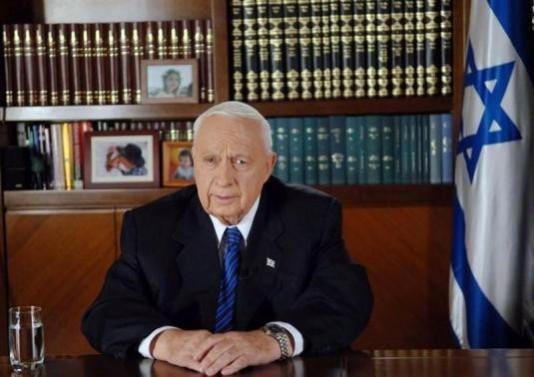It was unbelievable when the news broke that the hard-charging Isreali general Ariel Sharon, who fought in three Middle Eastern wars, died in a vegetative state at the age of 85 in the Sheba Medical Center, near Tel Aviv.
Revered by many in his country as the 'security man', Sharon mastered the art of survival in a battlefield in his early twenties, when he was a paratroop officer.

In a cross-border Arab guerrilla raid of 1953, he championed as many as nine reprisals, one of which killed dozens in the village of Qibya (West Bank), also known as the 'Qibya Massacre'.
The lifelong rancher was soon known as 'the Bulldozer' for his appetite of pursuing hardline policies, for instance, the settlement expansion in the territory Israel captured in the 1967 Middle East war.

While serving as the defence minister in 1982, Sharon masterminded Israel's invasion of Lebanon, for which he is reviled by many in West Asia as the 'butcher of Sabra and Shatila'.
Hundreds of Palestinians in two Beirut refugee camps of Sabra and Shatila were massacred during the invasion by Lebanese Christian militiamen allied to the Jewish country.

After an Israeli state inquiry found Sharon indirectly responsible for the camp killings, he was forced to resign.
"The Palestinian people remember what Sharon did and tried to do to our people and their dream of forming a state," Wael Abu Youself, a senior member of Abbas's umbrella Palestine Liberation Organisation, told Reuters.
The Palestinians accused him of sparking an 'Intifada' (uprising) by visiting the al Aqsa mosque plaza in Jerusalem's Old City in 2000, before he took power in 2001 as Israel's Prime Minister.
He further antagonised them in 2002 after his army crushed the self-rule areas of the West Bank, following a wave of Palestinian suicide bombings. The siege of Palestinian leader Yasser Arafat in his Ramallah compound had also embittered the Palestine.
"He knew no fear and never feared pursuing a vision," said President Shimon Peres, a former political ally of Sharon, while mourning his death.
But the crushing attacks on the Palestines during Sharon's lifetime were the reason people in Gaza celebrated his demise by handing out sweets to passers-by and motorists.
It was only once and most shocking in part of Sharon, when 'the Bulldozer' talked of withdrawing soldiers and settlers from Gaza in pursuit of 'disengagement' from conflict in 2005.
Predictably the Gaza strip was taken over by the Palestinian Hamas Islamists who reject co-existence with Israel, unlike President Mohammed Abbas.
Benjamin Netanyahu, the current Prime Minister of Israel, quit as Sharon's then finance minister in protest of the Gaza plan .
After Sharon's death, Netanyahu emphasised on his military rather than political endeavours. "He was first and foremost a brave warrior and great strategist, among the greatest of Israel Defence Force commanders," Netanyahu said.
Sharon passed away after being in coma for eight years. He was hit by a stroke in January 2006. His condition had seriously deteriorated during the last week of his life.
The remains of Sharon, a man who reshaped West Asia, would lie at the Parliament in Jerusalem after a memorial service on Monday morning, followed by a funeral at his residence in southern Israel near Sycamore Farm.
US Vice President Joe Biden, Russian Foreign Minister Sergei Lavrov and former British prime minister Tony Blair would attend the ceremony, reported Reuters.


!['Kaise ho bhai..': PM Modi shook hands with Akshay Kumar at a media summit in Delhi [Watch] 'Kaise ho bhai..': PM Modi shook hands with Akshay Kumar at a media summit in Delhi [Watch]](https://data1.ibtimes.co.in/en/full/806317/kaise-ho-bhai-pm-modi-shook-hands-akshay-kumar-media-summit-delhi-watch.jpg?w=220&h=135&l=50&t=40)


!['Kaise ho bhai..': PM Modi shook hands with Akshay Kumar at a media summit in Delhi [Watch]](https://data1.ibtimes.co.in/en/full/806317/kaise-ho-bhai-pm-modi-shook-hands-akshay-kumar-media-summit-delhi-watch.jpg?w=220&h=135)


